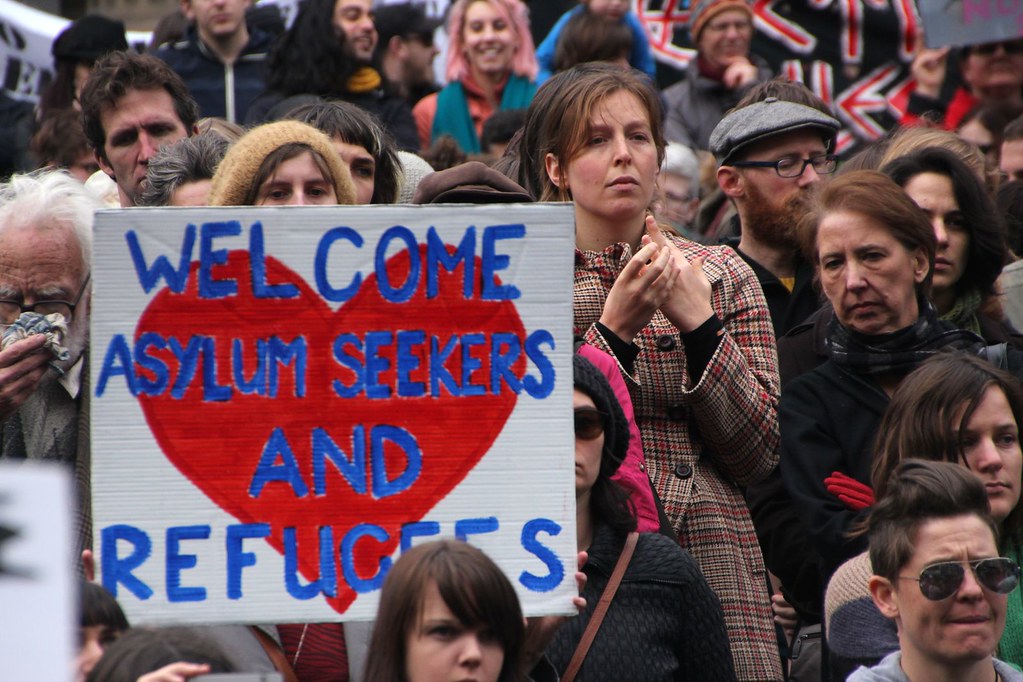By Emma Taylor
On a pine covered island in the eastern Aegean, surrounded by a sea of blue, enough to make any holidaymaker’s eyes glaze over, sits the jungle – the overspill of a refugee camp supposed to house six hundred migrants and instead being home to over five thousand (a sum which rises weekly).
The island is Samos, a Greek island just off the coast of Turkey, and has been at the forefront of receiving refugees since the establishment of a refugee camp there in 2015 as a response to the growing migration crisis. Upon first impression, you wouldn’t be wrong for thinking that this is an island paradise – warm water typical of the Mediterranean climate, shady olive groves and cheap wine.
However, for those living in the refugee camp, their time on Samos can be more accurately described as a nightmare. The conditions both inside the UN established camp and in the surrounding overspill known as the ‘jungle’ are inhumane – swamped with infestations of vermin, filthy and disease ridden toilets, and with barbed wire fencing in every direction you look, this place of refuge resembles more of a prison of torture.
This summer, I had the opportunity to spend time volunteering on Samos, working both directly and indirectly with some of the people who live inside the camp, trapped by the burden of their refugeehood. During the brief month I spent on Samos, I was struck by the contrast between my privileged position as a volunteer and those living as refugees on the island, whose autonomy has been stripped alongside their identity and freedom the second they left their homes in search of a safer future.
To have lost every single person I loved, to be in a foreign and hostile country where nobody spoke my language and for my entire identity to be reduced to a registration number was unimaginable to me – and yet the individuals that I met living inside the camp on Samos were among some of the warmest, kindest and most humble people I had ever met in my life.
The organisation which I was paired with was an NGO called refugee4refugees, and was initially set up by a Syrian refugee called Omar Alshakal after he attempted to swim across the Mediterranean in hope of a better life. Having worked for the white helmets in Syria and upon seeing the dire situation of refugees living in the refugee camps on the Greek islands, Omar decided to found refugees4refugees initially on the island of Lesvos and then later on Samos as a way to provide vital support to those individuals.
The organisation provides various services as such to those living In the camps – distributing donations of clothes and hygiene items to families who arrive on the island with nothing and running daily activities for the children who’s childhood had been prematurely ripped from them by forces they were blissfully unaware of. For many of the people for whom the refugee camp on Samos has become their home, their struggle is far from over and their journey towards a future void of war, violence and fear is far from over.
There is no quick fix to the refugee crisis, no magic spell which will bring peace to the countries from which people are fleeing and certainly no way of taking away the intense emotional pain which will stay with these individuals for the rest of their lives. If there is no quick fix then, and if the forces forcing people to leave their homes, countries and families are out of our control what can we do, on a personal level, which will help?
When you consider how politicised the discourse on migration has become and how the individual refugee has become a political tool which is used by politicians to instil a false sense of fear within the public, it is easy to see how so many people have turned their backs on humanity and have chosen to turn a blind eye to the horrors and struggles faced by those seeking refuge.
To be kind then is to be part of a revolution, to deconstruct the discourse which falsely accuses refugees of doing something wrong, and instead to practice inclusivity on every level and to remember always what brings us all together as human beings – only then can we work together to save the people who have incurred the lowest blows of the refugee crisis.
Image credit: Takver

